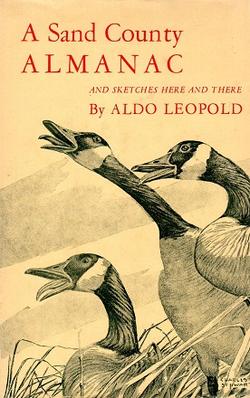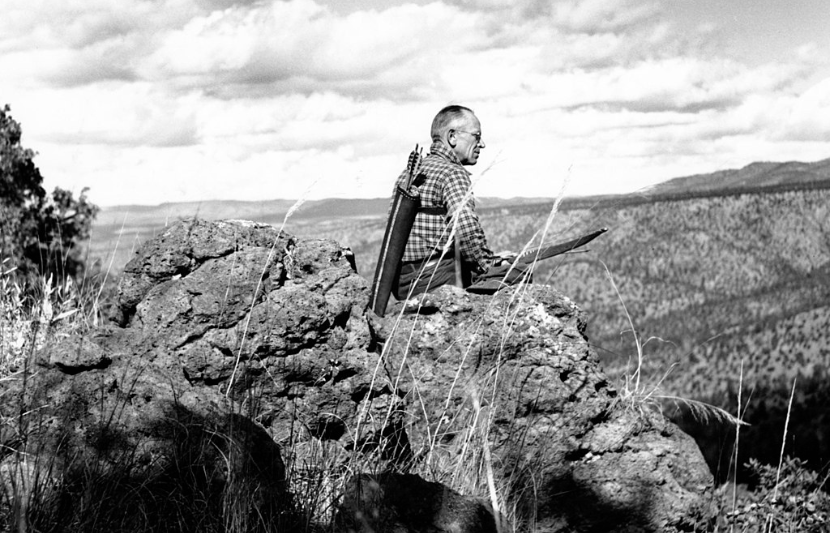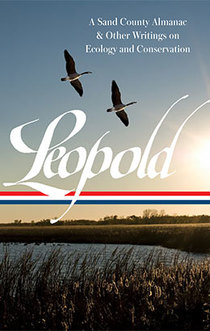If you believe in LOA’s mission and would like to support our activities in a substantial way, nothing is more helpful than endowing a volume in the series to keep it permanently in print. Your gift will have prominent recognition in the book, and as a Guardian of American Letters you will make a lasting contribution to American culture.
LOA’s newest candidate for adoption, Aldo Leopold: A Sand County Almanac & Other Writings on Ecology and Conservation, stands as a profound and prescient entry in America’s rich legacy of nature writing. Opening with A Sand County Almanac (1949)—an environmental classic on the order of Thoreau’s Walden or Carson’s Silent Spring—this comprehensive collection takes readers on an eight-hundred-page odyssey through Leopold’s essays, articles, and field journals, charting three decades of his thinking on topics ranging from forestry to farming, hunting to conservation.
Capable of empathizing up and down the food chain, from Yellowstone wolves to “the hibernating skunk, curled up in his deep den,” Leopold sought to awaken what he called “the ecological conscience,” intent on identifying people’s moral responsibility to the vast and interconnected tableau of which we’re a living part.
This notion is perhaps most famously encapsulated in his positing of “the land ethic,” a holistic concept of community that encloses not just human relations but all of nature. Leopold was quick to differentiate between platitudes about earthly beauty—postcard appreciations of pretty scenery—and a humbler, more authentic engagement with the wilderness: “In short, a land ethic changes the role of Homo sapiens from conqueror of the land-community to plain member and citizen of it,” he writes. “It implies respect for his fellow-members, and also respect for the community as such.”

First-edition cover of A Sand County Almanac (Oxford University Press)
Selected and annotated by Curt Meine, Leopold’s biographer, these trailblazing works allow readers to (according to The Wall Street Journal) “watch the flex and growth of his ideas, from his early attachment to wilderness as a place of frontiersman test to his communitarian vision of the land ethic. You see, too, how relevant his writing remains, 65 years after his death.”
Also included are Charles W. Schwartz’s original drawings for A Sand County Almanac, hundreds of Leopold’s own drawings, photographs, and maps, and almost a hundred letters, all but a few published here for the first time.
Now is your chance to make a mark on American literary history. A fully tax-deductible contribution of $75,000 to the Guardians of American Letters Fund will help to keep this essential volume in print and available to future generations of readers—an enduring testimony to Leopold’s vital environmental message and to your generous gift. Guardians and individuals they designate are recognized on a special acknowledgment page in the front of the volume of their choice, and this acknowledgment will appear in every future printing of the book.
Learn more about becoming a Guardian of American Letters.
• Donors to the Guardians of American Letters Fund
• Complete list of titles available for adoption





